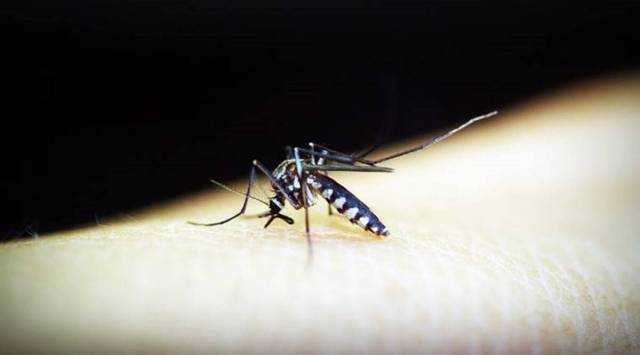Mumbai records highest number of Chikungunya cases in 3 years
Data from BMC showed that in 2022, only 18 cases were reported, which rose sharply to 250 in 2023. However, 2024 has seen an even larger spike, with 578 cases reported by October.
 Unlike previous years, the prolonged monsoon season has been a major contributing factor.
Unlike previous years, the prolonged monsoon season has been a major contributing factor.Mumbai has witnessed a rise in Chikungunya cases this year, with over 578 infections recorded between January and October, marking the highest numbers in three years. This surge has raised concerns among health officials and doctors, who are calling for urgent measures to curb the spread of the disease.
Data from BMC showed that in 2022, only 18 cases were reported, which rose sharply to 250 in 2023. However, 2024 has seen an even larger spike, with 578 cases reported by October.
“Chikungunya cases have been steadily increasing due to favourable breeding conditions for mosquitoes,” said Dr. Mohan Joshi, Dean of Sion Hospital. “What’s worrying is that many of these patients are presenting with severe symptoms like debilitating joint pain, fever, and muscle aches, and several have required hospitalisation.”
Chikungunya is a viral disease transmitted by Aedes mosquitoes, which are active during the daytime. Common symptoms include high fever, intense joint pain, muscle aches, headache, skin rashes, and fatigue. In severe cases, joint pain can persist for months, affecting daily activities.
Unlike previous years, the prolonged monsoon season has been a major contributing factor. Intermittent rains have left stagnant water in places such as construction sites, discarded containers, and tarpaulin sheets.
“Construction sites across the city are a big concern,” said a senior official from the BMC. “Unattended water stagnation in these areas has created a haven for Aedes mosquitoes. It’s crucial for contractors and residents to take responsibility and ensure proper hygiene to prevent mosquito breeding.”
Doctors report that Chikungunya recovery has been unusually slow this year, affecting the quality of life of patients for extended periods. Dr. Gautam Bhansali, Consultant Physician at Bombay Hospital, explained, “In younger patients, recovery typically takes 10 to 12 days, but this year we’re seeing many adults and elderly patients suffer from lingering symptoms for up to two months. Joint pain and fatigue are the most persistent complaints.”
Despite these figures, health experts say Chikungunya is preventable with collective efforts. “People must take proactive measures to eliminate mosquito breeding spots around their homes and workplaces,” said Dr. Bhansali. “Even small steps like covering water containers, cleaning drains, and using mosquito repellents can make a huge difference.”







